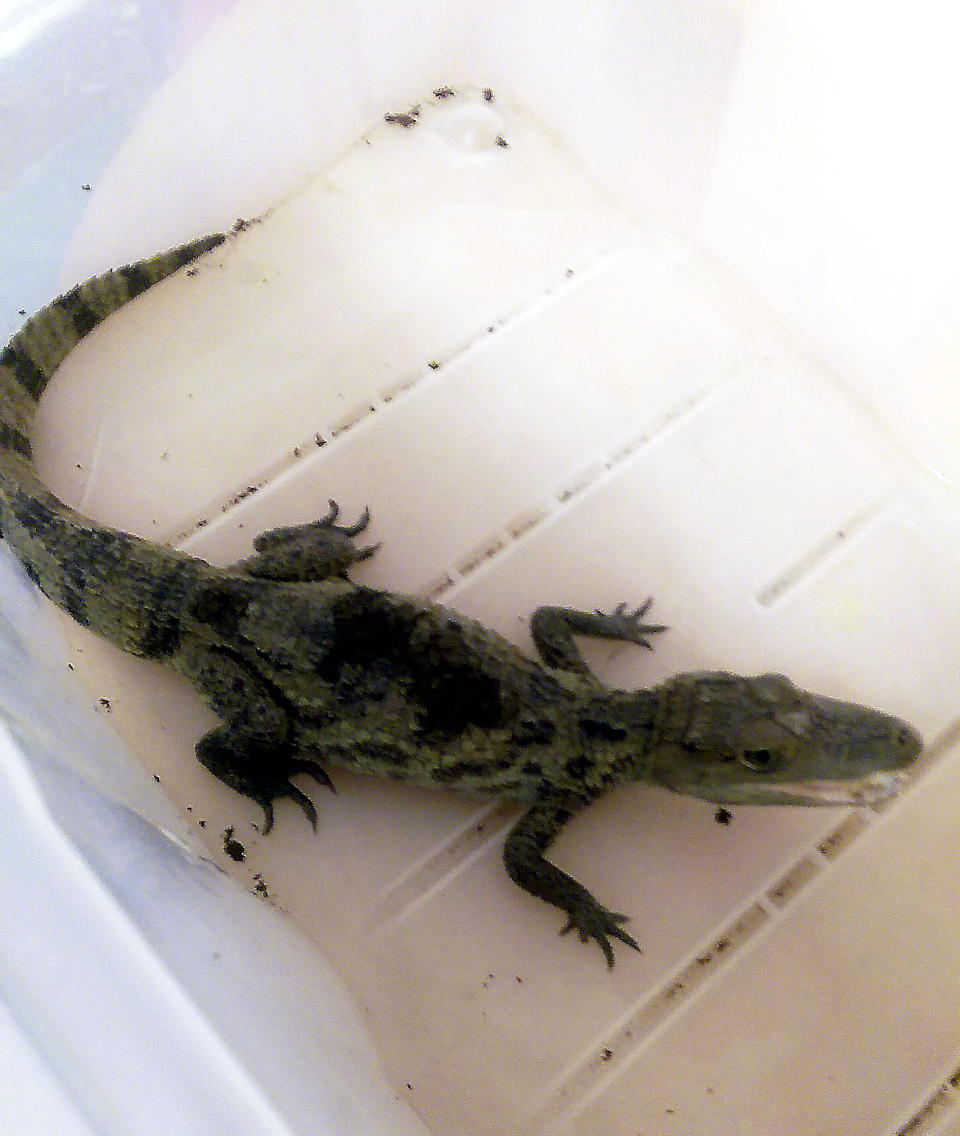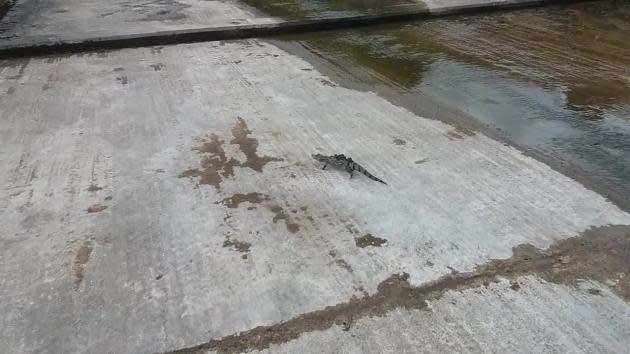Unusual sight as alligator spotted sunbathing at Somerset lake

It’s a sight you might expect to see in a tropical location somewhere, but this alligator was spotted basking in the sun right by an English lake.
The 2ft-long reptile – which could grow to more than 11ft – was spotted clambering out of the water at Chew Valley reservoir in Somerset, more popular for fly fishing and sailing than alligator spotting.
It’s unknown how the exotic animal, which is native to the Americas, ended up in rural England.
Luckily, staff at Bristol Water spotted it and managed to catch the creature with a net and put it in a box ready for the RSPCA to collect it.

John Harris, fisheries and recreation officer at Bristol Water, said: “One of our project engineers was surveying the overspill at Chew Valley Lake and on inspection he saw a reptile bathing in the sun.
“We went down there and caught it and put it in the container. Its mouth was open and it was hissing but I don’t think it was dangerous.”
MORE: Pictures of the week: Princes, parades and popes
MORE: ‘Mona Lisa of dinosaurs’ is so well-preserved we actually know its skin colour
He said they’re not sure whether the reptile is an alligator, caiman or crocodile but they suspect it is the first. Either way, it was a surprise to find such a creature in the middle of Somerset, he said.
“We’ve found terrapins in the past, but to see a reptile like this is very surprising.”

The sun-worshipping reptile was collected by the RSPCA and transported to a specialist facility in London.
The RSPCA said it is experiencing widespread abandonment and neglect of reptiles, with a “worrying number” coming into its centres because owners are no longer able to care for them.

 Yahoo News
Yahoo News 

